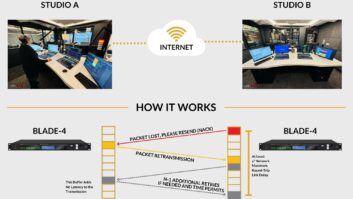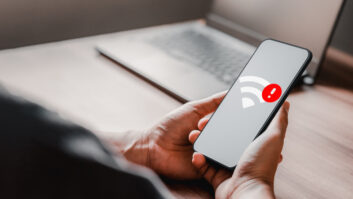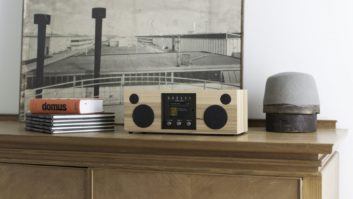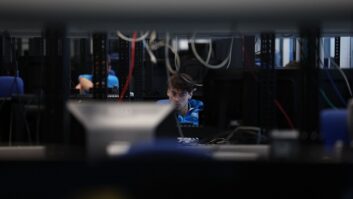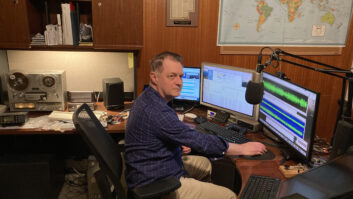When the United States first entered World War II, radio was fairly new.
A number of people had already used it for what we now see as unscrupulous causes: John R. Brinkley famously promoted questionable male augmentation procedures, first in the United States, and later from over the Mexican border, after pressure built to take him off the air and close his clinic. Across the ocean, Adolph Hitler promoted a populist agenda that made Germany great again, and to put it politely, was a threat to democracy, even here.
The simplicity of radio sets from the �30s and �40s belies their impact on the psyche of the country. The radios shown here are from the International Spy Museum in Washington, D.C. Approximately seven weeks after the United States� entry into World War II, �Voices from America� began transmitting with this pledge: �Today, and every day from now on, we will be with you from America to talk about the war… The news may be good or bad for us � We will always tell you the truth.�

It was a difficult decision to tell the truth, because America was not doing well in the war effort. The truth is, a lot of bad news was kept from the American public and the world, as U-boats sunk ships in sight of our coastline. The VOA would have reported such things (if they were made public). The decision to keep the VOA reporting as close to reality as possible paid off well when the tide of war shifted. The VOA had earned a reputation for accuracy, and in the end, the VOA made a difference.�
Media is a powerful tool for good and for evil � radio, especially so. Today, radio has taken a back seat to social media � which has been weaponized in a way that radio was not. No matter how far you�re leaning to the right or the left, radio overall, self-centers. It�s hard to keep an unsubstantiated position day-after-day on radio without cracks appearing: Sometimes it�s subtle cracks in the talent�s voice, but more often it appears as cracks in the narrative. In any case, one can tune around and find some balance.
Social media is not self-correcting � in fact, it is inherently the opposite. Social media built ISIS and gave us the Arab Spring Revolution. Arguably, it also gave us one of the most divisive elections in our history.
Radio tends (not entirely) toward discussion. There are callers, guests, interviews and analysis in radio�s native form. But there are also shows, mostly on the AM band, that are �meant to be entertainment,� that are nothing but one sided diatribes with an occasional hyper-screened call-in.
That�s the price we pay to scrape up enough audience to pay the power bill mostly on a medium that most listeners have long abandoned. Listen longer or change stations, and you�ll get another view. You know to doubt Planet-X�s existence because it appears occasionally on only one show that airs way after dark.�
Do this experiment: Search a controversial topic on your computer and then do it on a friend�s computer with a different political view. The search results will be entirely different.
Homophily is the characteristic of social media that feeds you what you like. All media lives and dies according to the time spent using it, and by giving you unchallenging results that reinforce your views, you begin to believe that everyone sees the world as you do. When you tell someone you disagree with to �Google it,� and they don�t change their mind, it�s often because they get different information. Radio doesn�t do that.
Our military � and almost every other military service in the world� now does a lot of information gathering and opinion shifting with large staffs and piles of servers as social media has been thoroughly weaponized. Radio hasn�t.�
We might get worried about cyberattacks on our stations, but it�s all low yield stuff, relatively speaking. Even if I log into your default passworded transmitter and upload my MP3 file and take over, what does it do? I will reach, maybe, one share of the small share of people listening. Outside of making the trade publications and maybe local TV news, not much will come of it. If it�s about reaching people, the yield is much higher with social media.�
A few months ago, there was a huge DDoS attack. We�ve already forgotten it. We�ve come to accept that the internet is a place with a lot of bad people doing a lot of bad things. Fortunately, the same can�t be said of radio.
The Wandering Engineer is an industry stalwart who has been in broadcasting since the days of Marconi and Tesla. He gives his thoughts on the current state of broadcast engineering and the broadcast engineer.






